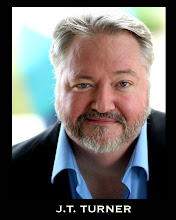
Memory - all alone in the moonlight.
I can smile at the old days,
I was beautiful then.
I remember the time I knew what happiness was.
Let the memory live again.-Cats
Ok not my favorite musical but a good launching point for a discussion of...memory!
I don't just work with actors, but with public speakers and presenters, seminar leaders and teachers. All of those people often run into a challenge, memorization. Yes, a speaker can often use notes, but should never just read a speech, parts of it should be memorized so that the audience gets to see those great eyes of yours. (Recall my past blog on eye contact. What? Don't remember it? Boy is this blog for you....).
Actors and speakers need a good memory. Sadly as we age the ability to memorize becomes more of a challenge. And I know many young actors who have trouble memorizing lines. Today I will take one of the tips I give in my Memory seminar, entitled The Palace of Memory, and share them with you. It is quite simply the fastest way to learn lines or memorize a speech.
First record the speech.Use an MP3, make a file on your computer, use a voice recorder or if you are technically challenged use a cassette player.Record your lines, as well as the cue lines that you hear before them, (you may want to use a slightly different voice for the cue lines, just speaking them more softly than your own lines works). If it's a monologue or speech, naturally just record the entire piece in one voice.
Now, listen to the recording, as you read the words, aloud, from the script. Do not test or memorize yet, just read aloud as you listen to the recording. This simple step will make memorization up to 70 times faster than other methods. This is because no matter what style of learner you are (oh look, a future blog topic!), this method works. The information you want to memorize is now being learned visually as you read the words, kinesthetically as you speak the words, and audibly as you listen to them. The words are getting into your brain 3 ways at once, and will make the piece stick faster. After doing this several times, (incrementally, if you can, do it 2 times in the morning and 2 times in the evening for several days), try to do it without the recording playing, and only look at the script when stuck. And after a few times without the recording, you will find you can do it without the written text needed as a crutch.
Fast, easy and it works, like all good tips should. But sometimes in a speech or when playing a role, some parts are messed up or forgotten, time and again. What can you do about "trouble" spots? Every time you practice the same part is fouled up, what to do?
Easy! Just read my next blog.

The Actor's Sensei
Coaching and acting classes available! jtactor@aol.com
(Thanks to Mary Rodgers for the photo).






No comments:
Post a Comment